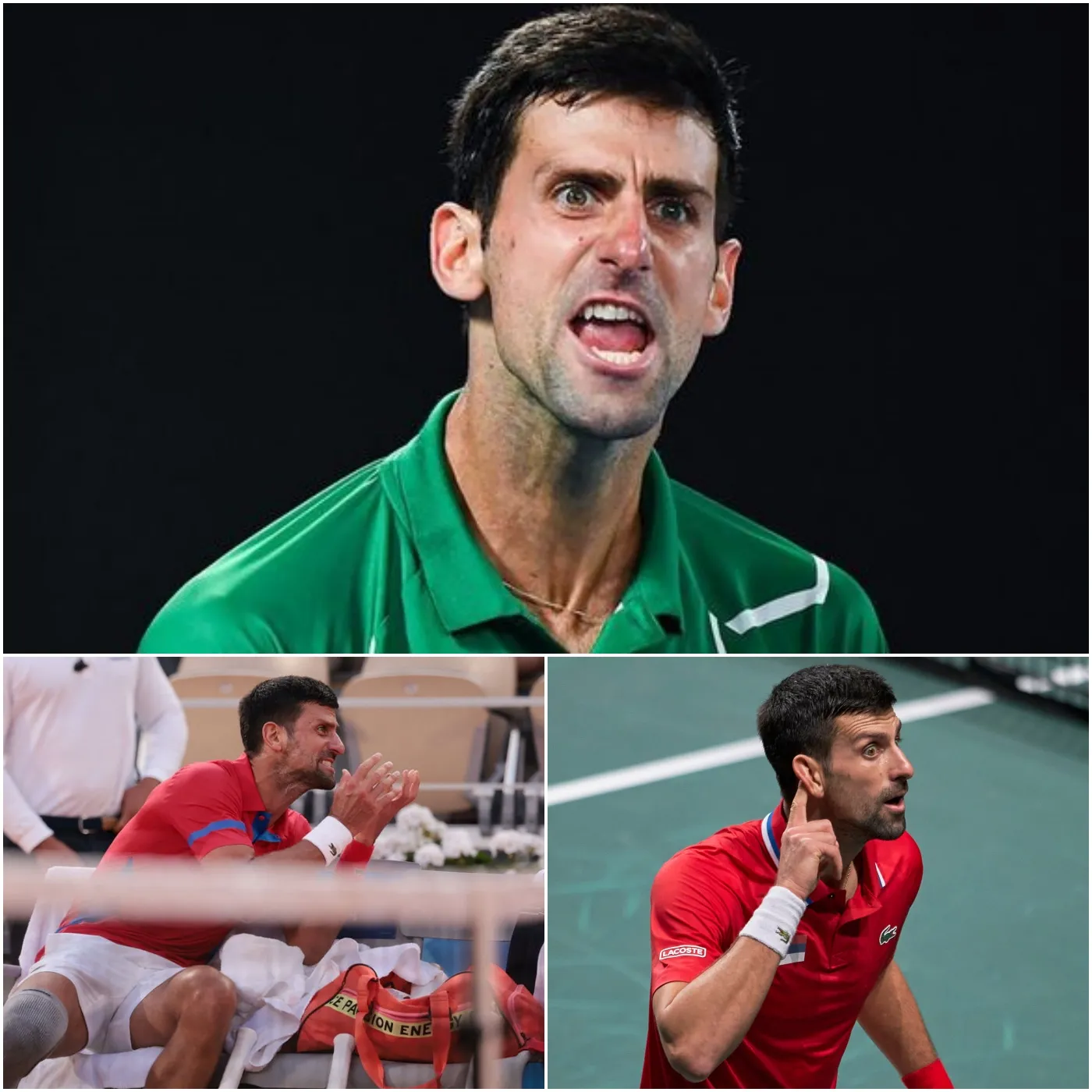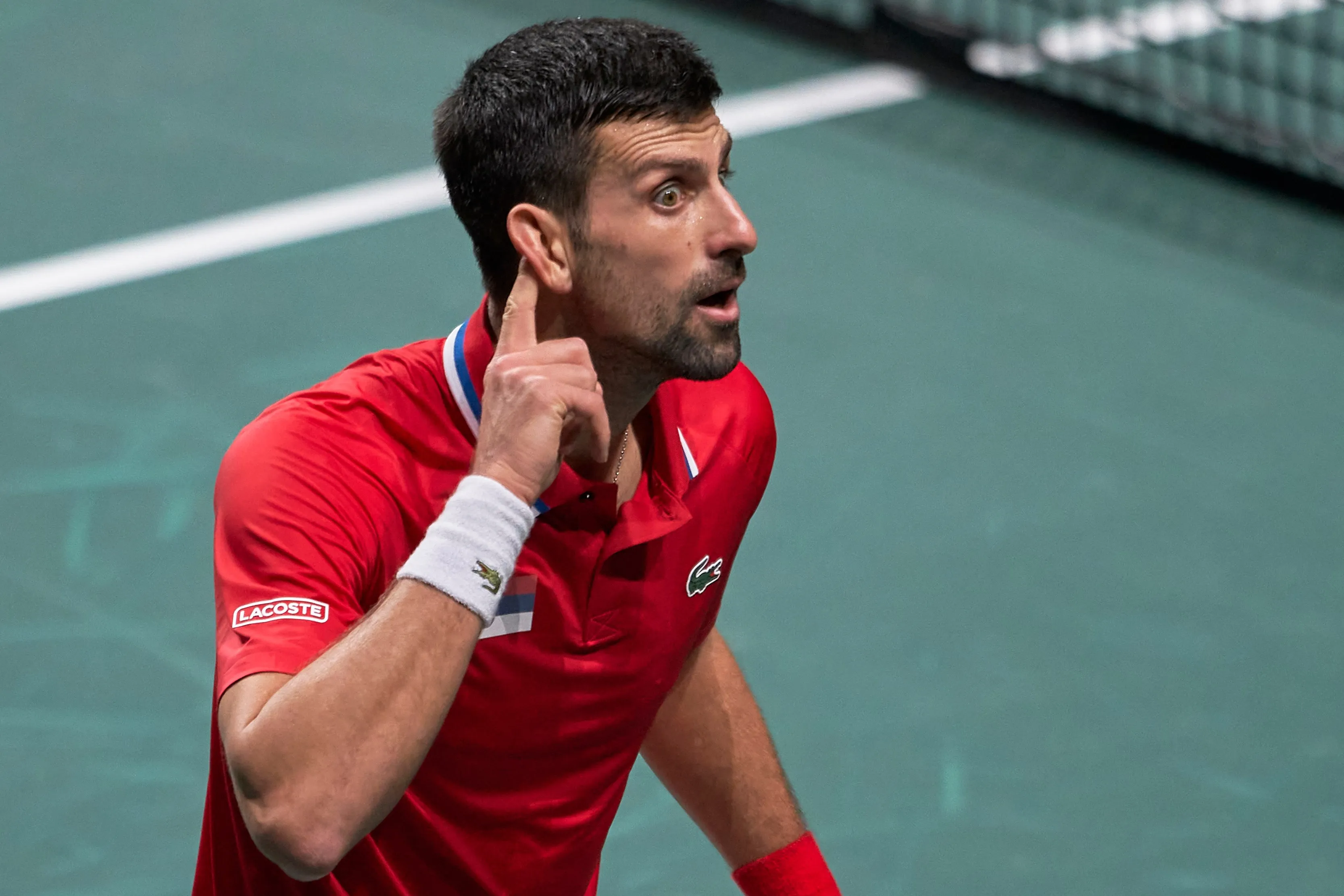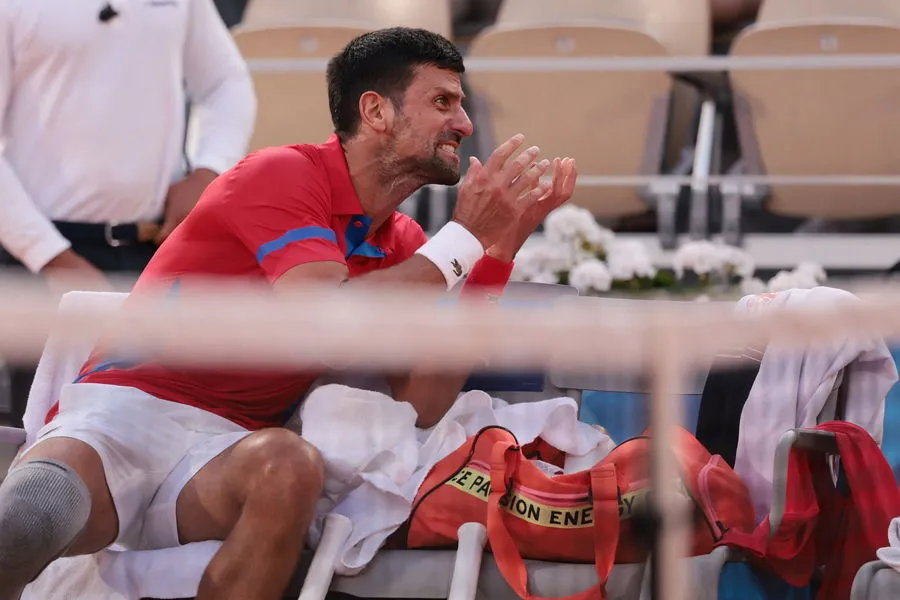In a dramatic turn of events at the Paris Olympics, tennis star Novak Djokovic found himself at the center of controversy once again. Known for his intense on-court demeanor, Djokovic’s frustration boiled over during a tense match, resulting in a heated outburst directed at his team after receiving a penalty from the chair umpire.
The match, already charged with high stakes and intense competition, took a dramatic turn when Djokovic was penalized by the chair umpire for a time violation. This decision, coming at a crucial moment, visibly rattled the world-renowned player. In response, Djokovic shouted expletives at his team, expressing his anger and frustration at the situation.
The incident quickly became the talk of the tournament, with fans and analysts alike weighing in on the outburst. Some supporters of Djokovic empathized with his frustration, understanding the immense pressure athletes face at such high levels of competition. Others, however, criticized his behavior, emphasizing the importance of maintaining composure and sportsmanship, especially on such a prominent stage.
Despite the penalty and the subsequent outburst, Djokovic managed to regroup and continue his performance. The match remained fiercely contested, with both players displaying remarkable skill and tenacity. However, the penalty and the emotional turmoil it caused undoubtedly added an extra layer of difficulty for Djokovic as he battled to stay focused and in control.
This is not the first time Djokovic’s emotions have made headlines. His passionate and sometimes volatile reactions on the court have been a subject of both admiration and criticism throughout his career. While his intensity and drive are often seen as strengths, incidents like this highlight the fine line between competitive fervor and unacceptable behavior.
The incident at the Paris Olympics serves as a reminder of the immense pressure athletes face, especially during major events like the Olympics. The expectations from fans, the media, and their own personal goals can create a high-stress environment where emotions run high. While it’s essential to acknowledge this pressure, it’s equally important for athletes to find ways to manage their emotions constructively.
As Djokovic continues his quest for Olympic glory, this incident will likely serve as a learning experience. His ability to channel his emotions positively will be crucial in the upcoming matches. Fans and critics alike will be watching closely to see how he handles the pressure and whether he can maintain his focus and composure.
Novak Djokovic’s outburst at the Paris Olympics has sparked significant discussion about the pressures of high-stakes competition and the importance of emotional control. While his frustration was evident and perhaps understandable, the incident underscores the need for athletes to navigate their emotions carefully. As the tournament progresses, Djokovic’s response to this setback will be a key factor in his pursuit of Olympic success.





